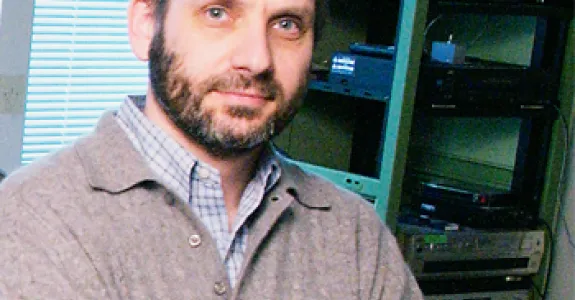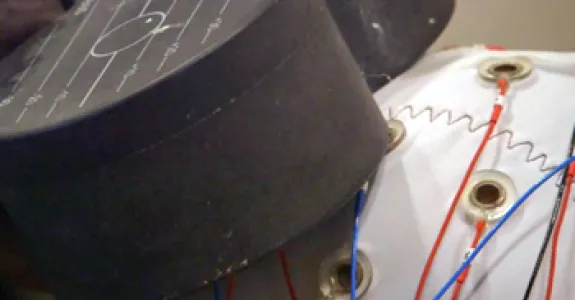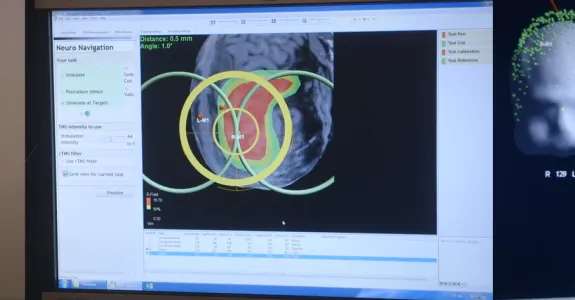
Dr. Stephen Baccus's lab studies how the circuitry of the retina translates the visual scene into electrical impulses in the optic nerve. Visual perception is initiated by the molecules, cells and synapses of the retina, acting together to process and compress visual information into a sequence of spikes in a population of nerve fibers. One of the largest gaps in neuroscience lies in the explaining of systems-level processes like visual processing in terms of cellular-level mechanisms. This problem is tractable in the retina because of its experimental accessibility, and the substantial amount already known about basic retinal cell types and functions.
The lab's goal is to extract general principles of computation in neural circuits, and to explain specific retinal visual processes such as adaptation to contrast and image statistics, and the detection of moving objects. To do this, they use a versatile set of experimental and theoretical techniques. While projecting visual scenes from a video monitor onto the isolated retina, an extracellular multielectrode array is used to record a substantial fraction of the output of a small patch of retina. Simultaneously, they record intracellularly from retinal interneurons in order to monitor and perturb single cells as the circuit operates. To measure the activity of both populations of interneurons and output neurons, they record visual responses optically using two-photon imaging while simultaneously recording with a multielectrode array. Finally, all of this data is assembled and interpreted in the context of mathematical models to predict and explain the output of the retinal circuit.
An additional focus of the Baccus lab is to develop approaches to stimulate the nervous system using focused ultrasound. Recent studies have shown that ultrasound can activate the retina with high spatial and temporal precision. This technology holds promise as a noninvasive tool to study the brain and treat diseases of the nervous system both in the retina and elsewhere in the brain.







